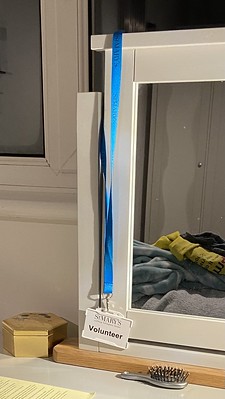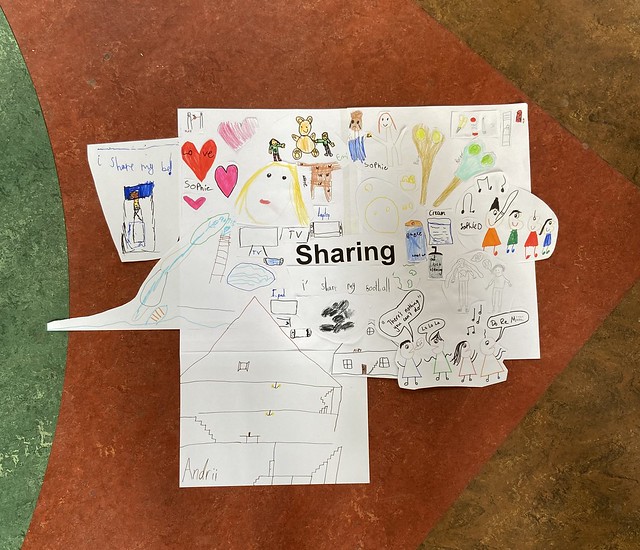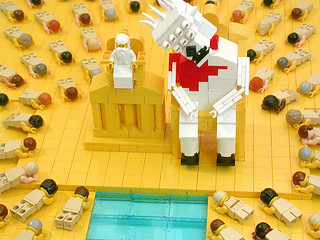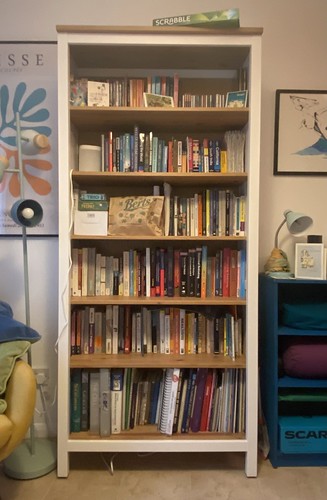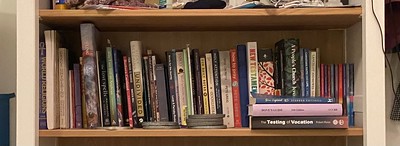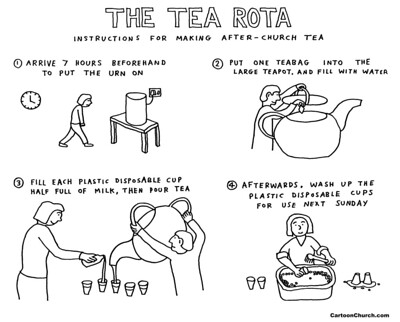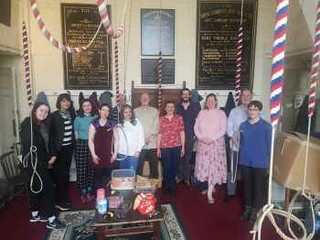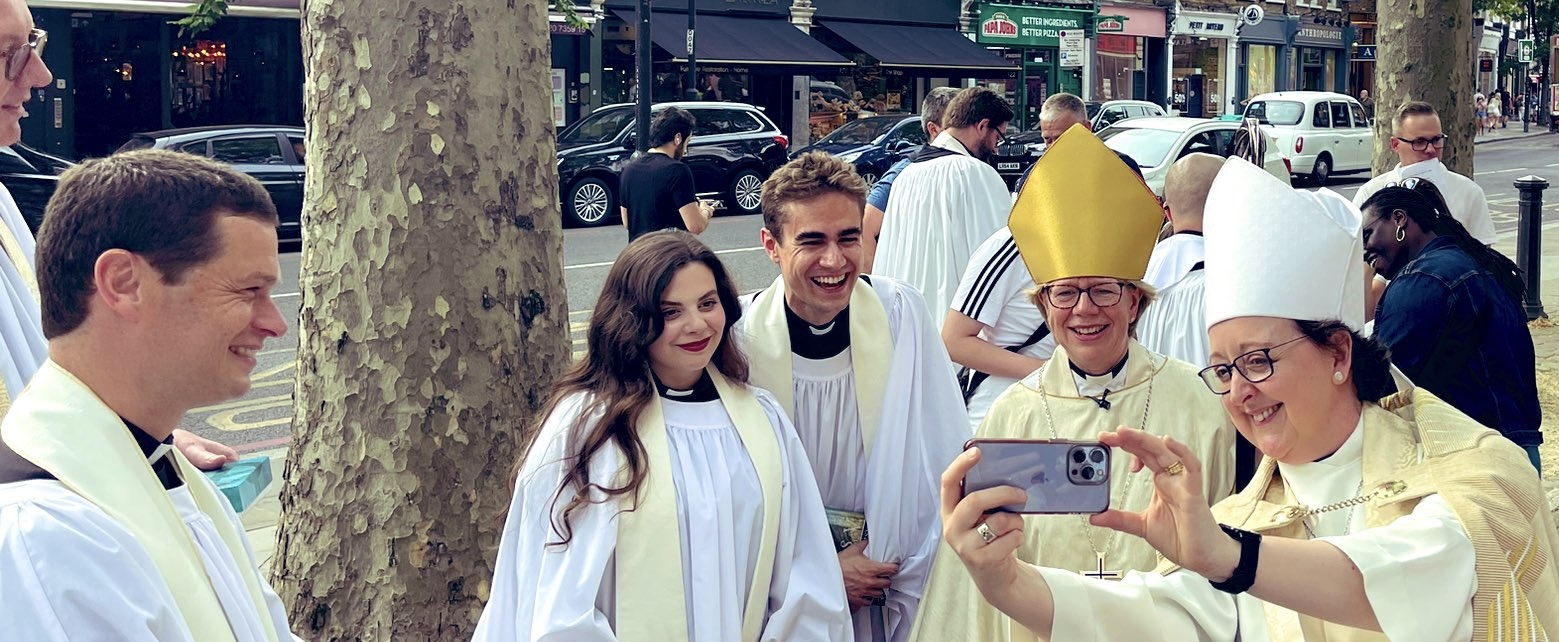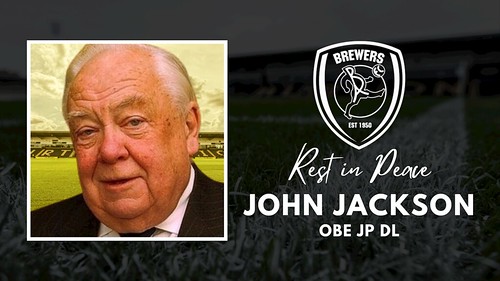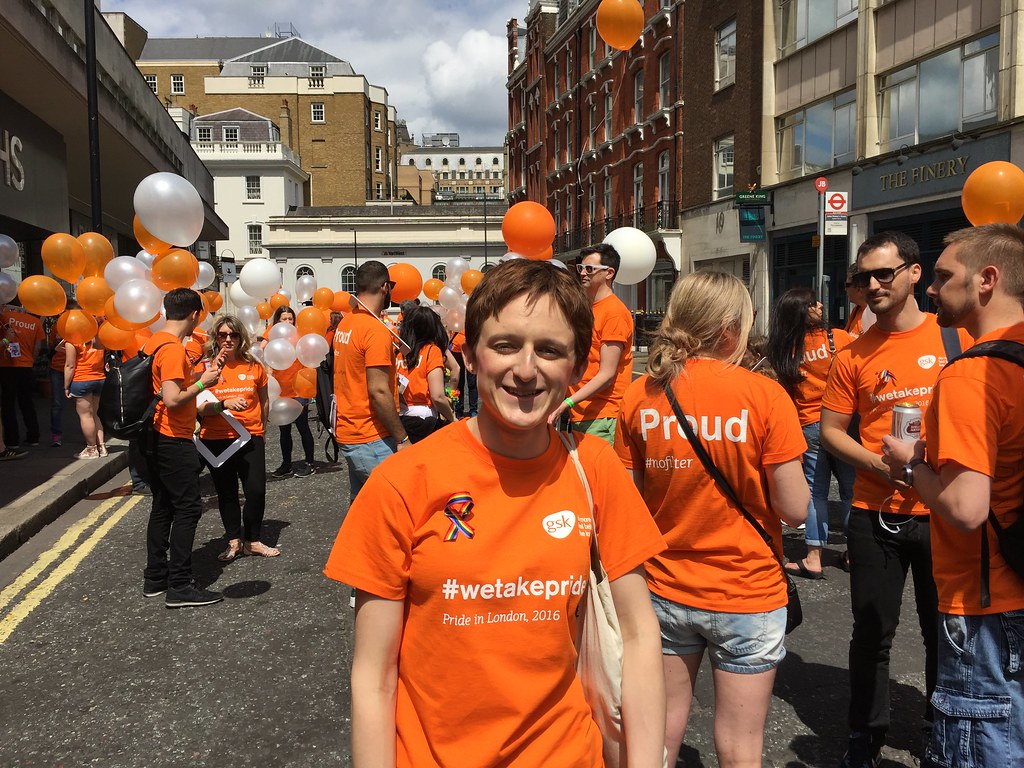About eight months or so ago, I started talking about the concept of a scale of faith in Christ. I christened it the Jesus scale. Here is a diagram:
On the far left, you have antitheism, hard determinism, militant atheism, and frankly a lot of rage. Moving along the scale, you come to spiritual but not religious, vague belief in some sort of higher power but no deity, and moralistic therapeutic deism. Somewhere along the line there is baptism, cultural Christianity, regular churchgoing. Heartfelt profession of faith. Further up the scale are people more churchy than you and that is where it gets unsettling. The scale goes further still: the religious life, say. Anchoresses. At some point we move out of my comfort zone entirely: young-earth creationism, Biblical literalism. Damaging fundamentalism. Again: rage.
Political extremes are not a scale but a cycle. Communism becomes fascism if you follow it far enough. So it is for religion. Both antitheism and fundamentalist Christianity use their doctrines as justification for oppression. A pair of inflexible positions rooted in fear and in hatred.
One weakness of this model is that it fails to account for other faiths. I would be interested in exploring how this concept plays out there. Anyhow, my coming to faith meant moving up the Jesus scale so fast I ended up with spiritual whiplash. Just about now, as that seems to be resolving, I have hit a new problem.
All possible means
I was prompted to come up with the Jesus scale after noticing that when I have conversations about faith, and sometimes other topics, I carefully figure out where other people might be on the Jesus scale, and pitch my words and behaviour so that my range on the scale presents as overlapping with theirs. If I do not do this, in either direction, I alienate them fast. When I dare to think about what type of priest I can see myself being, I want to be the guy who can hit all the bases, with the exception of the extremes. This is not a new desire. As the apostle Paul puts it:
20To the Jews I became like a Jew, to win the Jews. To those under the law I became like one under the law (though I myself am not under the law), so as to win those under the law. 21To those not having the law I became like one not having the law (though I am not free from God’s law but am under Christ’s law), so as to win those not having the law. 22To the weak I became weak, to win the weak. I have become all things to all people so that by all possible means I might save some.
20To the Jews I became like a Jew, to win the Jews. To those under the law I became like one under the law (though I myself am not under the law), so as to win those under the law. 21To those not having the law I became like one not having the law (though I am not free from God’s law but am under Christ’s law), so as to win those not having the law. 22To the weak I became weak, to win the weak. I have become all things to all people so that by all possible means I might save some.
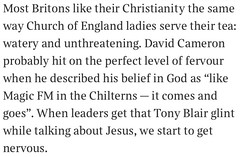
From an article in The Times
h/t Mads Davies
Fear not.
I reassure them,
You’ve not lost me to those people.
gesturing at the terrifying other. I keep quiet about my relationship with Jesus and how my prayer life is going, and am careful never to describe how by the time the weekend rolls around I ache for the absolution and Eucharist. That would not go down well and might make them afraid or hostile.
At the other end of the scale are prayer warrior friends who think nothing of grabbing our hands and praying openly during teas and coffees after the service (yes, really) and describing their lives in terms of the work of the spirit. During that prayer bit, I felt a prat. But we were planning a New Year’s Party at the time and had hit a roadblock. We prayed that the Lord would guide us to the right venue, that a lot of people would join us, and for hot men. Reader, we got all three. But if this kind of shenanigans makes me feel awkward, no wonder when I try to talk about my sense of vocation with James, I clam up, feel horribly vulnerable, and become all thumbs.
My Lord I beg you to send someone else, not me.
13But Moses said, “My Lord, I beg you to send someone else, not me.”
13But Moses said, “My Lord, I beg you to send someone else, not me.”
At our most recent meeting, James explained the expectation that I would be able and willing to articulate my sense of calling. Not keen on this prospect, I closed out the meeting by saying
Right, I’m off to cry to my therapist
He seemed not to understand. James is at a different place on the Jesus scale.
I sought solace in a video call with a supportive friend. I explained the Jesus scale to him.
What I’ve gotta do
I continued
is get more comfortable talking a bit further up the scale. I have to be able to articulate it.
You,
I indicated, gesturing some sort of mid-range of values
your range is here, but once I start talking about my relationship with Jesus…
and my friend visibly winced. The cringe is real, right? Zealotry is alienating. But the opposite is also true. Priests who joke about not believing in God provoke a related sense of disquiet for the nascent Christian.
When I am with a different cohort of people, such as my friend who led us in prayer for the New Year’s Party, others in discernment, and God-fearing clergy, I flinch less, because our conversation is pitched different on the Jesus scale. For myself, I am now tasked with pulling what I am confident conversing about up in line with my inner experience. The outer and the inner are in different places. I am not worried about being not Jesus enough, but I do tend to frame my experiences with God in terms of defensive jokes.
My flinching friend digested what I am up against, sat back, and reflected:
I don’t envy you.
This made me feel validated, but hardly reassured. I am determined to get past this, but at this point in time I do not know exactly how. It matters not because I need to successfully navigate the Church of England discernment process, nor because I need to somehow convince James. Those things are in God’s hands. I could not fake them and nor would I want to. It matters for the sake of possible future ministry to others. If I am going to be a religious leader, I need a faith that other people can lean on – I like Matt Redman’s description of an unswerving faith – and it needs to be visible. Being able to articulate it, without shame, without flinching, without wanting to hide behind a cushion, is part of that.
15…Always be prepared to give an answer to everyone who asks you to give the reason for the hope that you have. But do this with gentleness and respect, …
15…Always be prepared to give an answer to everyone who asks you to give the reason for the hope that you have. But do this with gentleness and respect, …


